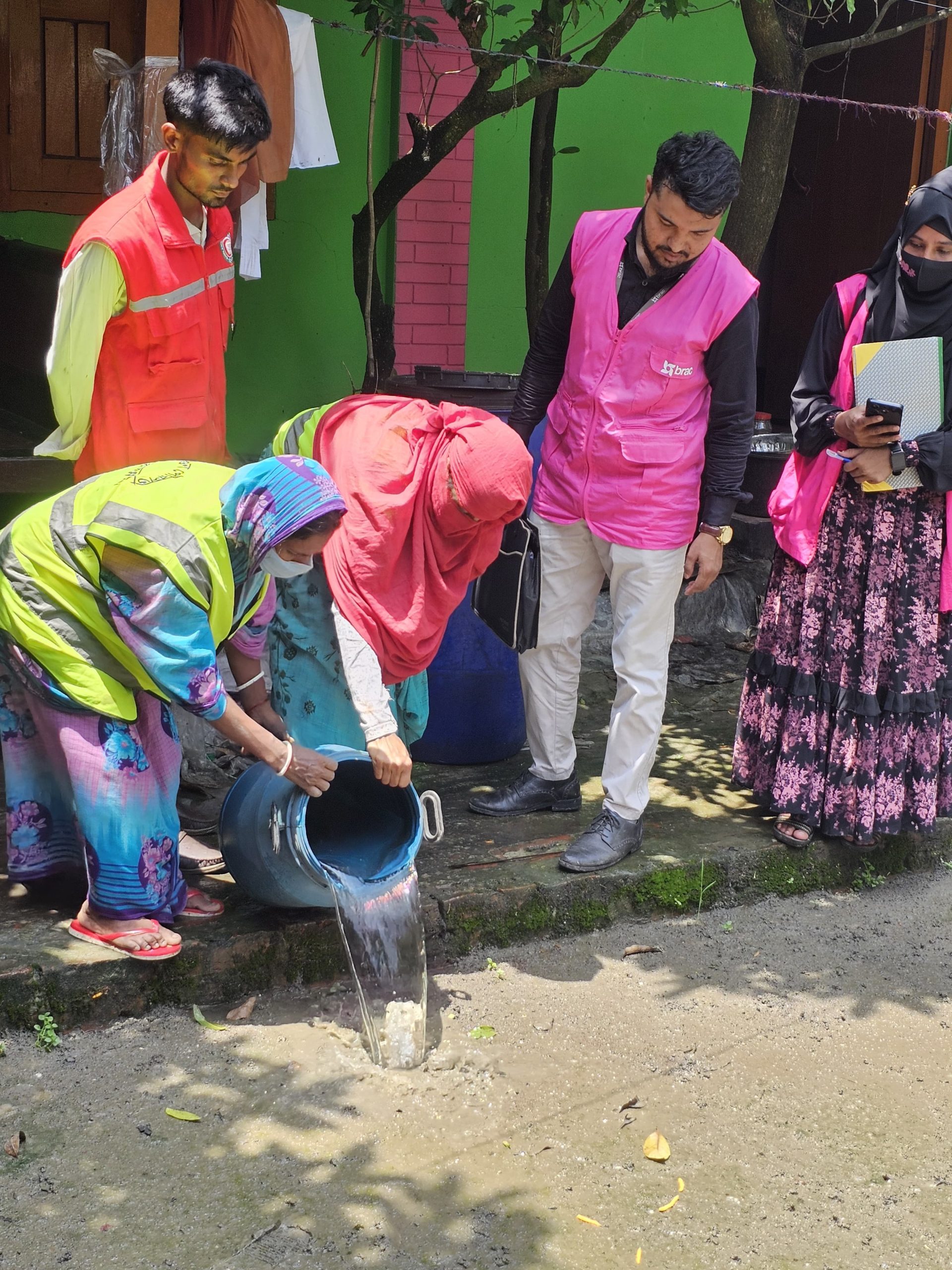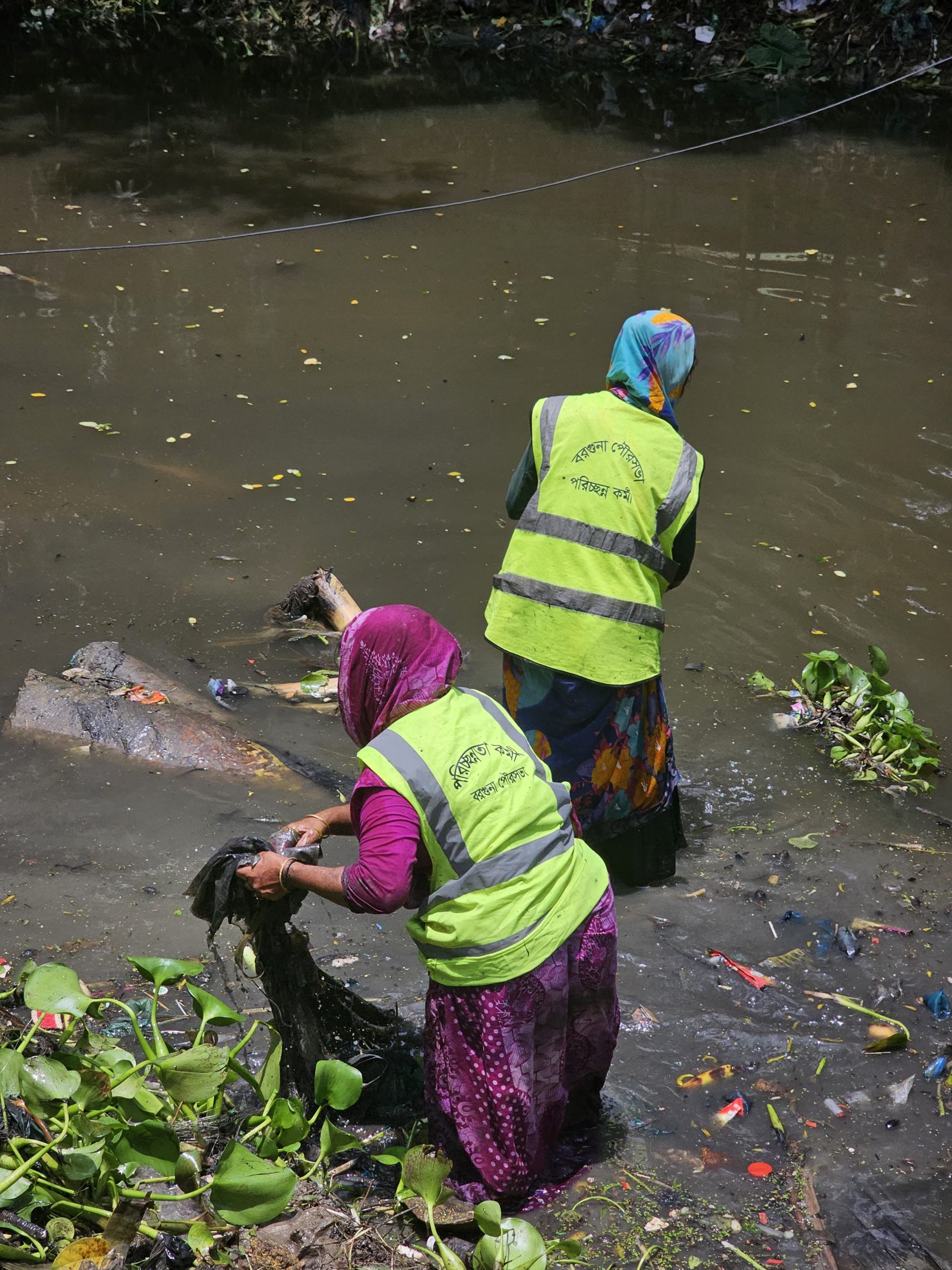BRAC’s Emergency Action as Dengue Crisis Deepens in Barguna

Alarming Dengue Surge in Southern Bangladesh
Dengue infections in Bangladesh have reached worrying levels, with the highest number of cases in the southern, climate-vulnerable districts. According to the Directorate General of Health Services (DGHS), one-third of all hospitalised dengue patients nationwide are from Barguna district, creating serious concern for health authorities.
In May and June alone, Barguna reported 2,855 dengue cases. Factors such as irregular rainfall, high temperatures, poor sanitation, and unplanned water storage have made conditions perfect for Aedes mosquitoes to breed, turning Barguna into the current hotspot of the country’s dengue outbreak. The Barishal division has already been marked as a high-risk area.

BRAC Launches Emergency Health Response
To support national dengue control efforts, BRAC’s Health Programme has launched an emergency response in Barguna. Teams of trained health workers and volunteers are operating in Barguna town, Patharghata, Bamna, Betagi, Amtali, and Taltali.
They are conducting door-to-door awareness campaigns, removing mosquito breeding sites, and working with local authorities and community volunteers to run large-scale cleanliness drives.
Since June 17, BRAC teams have visited 6,510 households and identified and destroyed 2,141 active breeding sites.
Focus on Climate and Health Awareness
Dr. Shayla Islam, Associate Director of BRAC Health Programme (BHP), explained that climate change is changing disease patterns and seasons, creating new health challenges.

“Irregular rainfall, high temperatures, and poor water management create ideal conditions for Aedes mosquitoes. Our work isn’t just about killing mosquitoes, but also about educating communities so they’re prepared for future climate-related health threats,” she said.
Public Announcements and School Campaigns
To stop the spread of dengue, public announcements are being made every evening in high-risk areas, explaining symptoms, prevention tips, and when to seek medical help.
Awareness messages are also shared through mosques, temples, local schools, and madrasas. Schools are running special sessions to teach students about dengue prevention.

These efforts are coordinated with the offices of the District Commissioner and Civil Surgeon, Barguna Municipality, BDCLEAN, Red Crescent volunteers, and local ward committees. Clean-up drives and larvicide spraying are continuing in mosque courtyards, school fields, and markets.
Recovery Rates Offer Hope, But Vigilance Needed
Dr. Muhammad Abul Fatha, Civil Surgeon of Barguna, said, “Out of the 2,855 reported cases so far, 2,701 patients have recovered and returned home, which is encouraging. But without preventive action, our health systems could be severely strained.”
Long-Term Goals: Building Local Capacity
Under BRAC’s Health Programme, the Climate Change and Health project is training field health workers in integrated vector control, waste management, and sanitation awareness. The aim is to empower communities to identify and respond to their own health risks.
BRAC has pledged to continue its work in the region until the dengue outbreak is fully under control.












